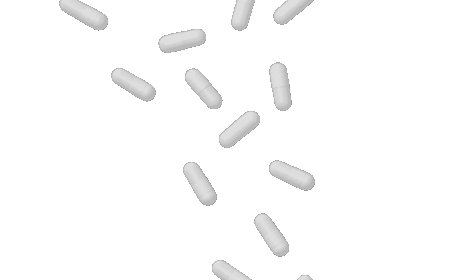The Best Foods to Eat When Battling a Cold or Flu
Learn what to eat when you have a cold or flu. Discover the best immune-boosting foods that soothe symptoms, provide hydration, and help you recover faster.

When the sniffles hit and your energy drops, your first instinct may be to crawl into bed with a box of tissues. While rest and hydration are essential, your diet also plays a crucial role in how quickly you bounce back. Understanding what to eat when you have a cold can make a real difference in supporting your immune system, relieving symptoms, and accelerating recovery.
Whether youre fighting off the common cold or trying to get through a seasonal flu, certain foods offer more than comfortthey deliver vital nutrients, hydration, and healing properties that help your body respond effectively to illness. In this guide, we explore the best foods to eat when youre sick, the science behind their benefits, and practical tips for nourishing your body during recovery.
Why Food Matters During a Cold or Flu
When youre sick, your immune system works overtime to battle viruses. This heightened activity increases your bodys demand for energy and essential nutrients like vitamin C, zinc, and antioxidants. However, symptoms like sore throat, congestion, and fatigue can suppress appetite, making it harder to eat well.
Eating the right foods when you're ill can:
-
Reduce inflammation
-
Soothe sore throats and nasal congestion
-
Replenish electrolytes and fluids
-
Provide energy and strength
-
Support immune function and healing
Thats why knowing what to eat when you have a cold is an important step toward feeling better faster.
Top Foods to Eat When You Have a Cold
Lets look at the most effective foods for managing cold or flu symptoms and promoting faster recovery.
1.Chicken Soup
Chicken soup is more than just a comfort foodit's a time-tested remedy backed by science. The warm broth helps keep you hydrated, the steam relieves nasal congestion, and the combination of protein and vegetables provides essential nutrients.
Benefits:
-
Thins mucus
-
Eases congestion
-
Provides hydration and electrolytes
-
Offers anti-inflammatory properties
Pro Tip: Add garlic, ginger, and leafy greens for an extra immune boost.
2.Citrus Fruits
Citrus fruits like oranges, lemons, and grapefruits are rich in vitamin C, a powerful antioxidant known for its immune-supportive properties. While vitamin C wont cure your cold, studies show it can help shorten its duration and reduce symptom severity.
Benefits:
-
Enhances immune cell function
-
Provides hydration
-
Fights inflammation
How to Enjoy: Drink warm lemon water with honey or eat fresh orange slices with breakfast.
3.Ginger
Ginger has long been used in traditional medicine for its anti-inflammatory and antioxidant effects. It helps ease nausea, reduces throat irritation, and may assist in clearing nasal passages.
Benefits:
-
Calms upset stomach
-
Clears sinuses
-
Fights inflammation
How to Enjoy: Steep fresh ginger in hot water for tea, or grate it into soups and stews.
4.Honey
Honey is a natural remedy for sore throats and persistent coughs. It has antimicrobial properties and forms a soothing coat on the throat lining.
Benefits:
-
Soothes sore throat
-
Acts as a mild cough suppressant
-
Provides quick energy
Note: Do not give honey to children under one year old due to risk of botulism.
5.Bananas
When you're sick and dont have much appetite, bananas are a gentle, easy-to-digest option. Theyre rich in potassium, which helps regulate fluid balance and muscle function.
Benefits:
-
Easy on the stomach
-
Rich in essential nutrients
-
Provides natural energy
How to Enjoy: Eat alone or mash into oatmeal or smoothies for added nutrition.
6.Yogurt
Yogurt contains probioticsbeneficial bacteria that help balance your gut microbiome. Since your gut health is closely tied to your immune system, probiotic-rich foods are ideal when you're sick.
Benefits:
-
Supports immune function
-
Soothes irritated throats
-
Offers protein and calcium
Choose: Unsweetened yogurt with live cultures; avoid sugary varieties.
7.Oatmeal
Oatmeal is warm, comforting, and packed with fiber and nutrients like zinc and B vitamins that support immune function. Its also easy to prepare and digest.
Benefits:
-
Provides lasting energy
-
Supports gut and immune health
-
Easy to customize with healing add-ins
How to Enjoy: Top with banana, honey, or cinnamon for a nutrient-packed bowl.
8.Leafy Greens
Spinach, kale, and other leafy greens are high in vitamins A, C, and E. These antioxidants strengthen your immune system and support cell repair.
Benefits:
-
Reduces oxidative stress
-
Provides fiber and essential minerals
-
Supports detoxification
How to Enjoy: Add to soups, smoothies, or lightly saut with garlic and olive oil.
9.Bone Broth
Bone broth is rich in minerals, collagen, and amino acids that promote healing and hydration. It's particularly soothing when you have a sore throat or feel too weak to eat solid food.
Benefits:
-
Replenishes electrolytes
-
Soothes digestive and respiratory systems
-
Easy to sip throughout the day
Pro Tip: Make homemade bone broth using chicken or beef bones simmered with vegetables and herbs.
10.Herbal Teas
Warm fluids help loosen mucus and soothe sore throats. Herbal teas like peppermint, chamomile, and ginger tea not only hydrate but also offer therapeutic benefits.
Benefits:
-
Eases congestion and cough
-
Calms inflammation
-
Promotes rest and relaxation
Best Choices: Ginger tea (anti-inflammatory), peppermint tea (opens airways), chamomile tea (promotes sleep)
What to Drink When Youre Sick
Hydration is critical when you're ill. Fever, coughing, or nasal drainage can lead to fluid loss, so it's important to drink consistently throughout the day.
Best fluids include:
-
Water
-
Coconut water (natural electrolytes)
-
Warm lemon water with honey
-
Herbal teas
-
Clear broths
-
Diluted fruit juices (low sugar)
Avoid caffeine and alcohol, which can dehydrate you and weaken your immune response.
What Not to Eat When You Have a Cold
While knowing what to eat when you have a cold is important, certain foods may make symptoms worse or slow recovery.
Avoid:
-
Sugary snacks and drinks: Suppress immune function
-
Fried or greasy foods: Hard to digest and may increase inflammation
-
Dairy (for some people): Can thicken mucus and worsen congestion
-
Highly processed foods: Lack nutrients and may cause digestive discomfort
-
Caffeinated beverages: Can disrupt sleep and increase dehydration
Sample Sick-Day Meal Plan
Heres a simple, cold-friendly meal plan to guide your nutrition:
Breakfast:
-
Oatmeal with banana and honey
-
Ginger tea with lemon
Mid-Morning Snack:
-
Yogurt with berries
Lunch:
-
Chicken soup with garlic and spinach
-
Whole-grain toast (optional)
Afternoon Snack:
-
Orange slices or a fruit smoothie with leafy greens
Dinner:
-
Steamed rice with sauted kale and garlic
-
Warm bone broth
Before Bed:
-
Chamomile tea with a spoonful of honey
This plan keeps meals light, hydrating, and full of the nutrients your body needs to recover.
When to See a Doctor
While most colds resolve on their own within 710 days, its important to consult a doctor if you experience:
-
High fever lasting more than 3 days
-
Shortness of breath or chest pain
-
Dehydration or confusion
-
Severe sinus pain or pressure
-
Symptoms that worsen after initial improvement
Dont hesitate to seek medical advice if you feel your illness is beyond a simple cold or flu.
Final Thoughts
Understanding what to eat when you have a cold can significantly impact your recovery timeline and comfort level. Nourishing your body with warm, nutrient-dense foods like soup, fruits, yogurt, and tea not only soothes symptoms but also strengthens your immune defenses. Pair your meals with plenty of fluids, ample rest, and self-care, and youll be on the path to recovery in no time.



























